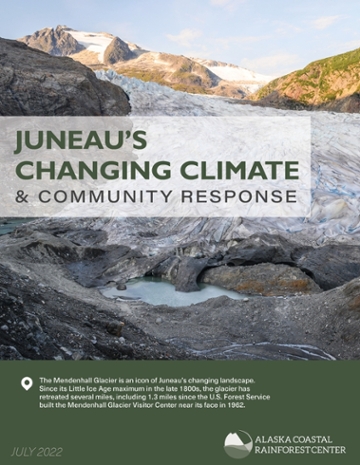
Juneau's Changing Climate & Community Response
The Alaska Coastal Rainforest Center (ACRC) is pleased to bring you this report on climate change. ACRC and the University of Alaska Southeast Juneau reside on the ancestral lands of the Áak’w Kwáan Tlingit. Long before western observations of climate change, Indigenous people of Southeast Alaska observed and responded adaptively to changes in this dynamic environment, including rapid glacial advances and retreats, sea-level rise and fall, and a host of extreme events that are well-documented in oral histories. We honor and respect Indigenous experience with climate change and the intergenerational wisdom that has guided Alaska Natives through earlier periods of environmental changes.
Now, a new era of climate change unprecedented in human history is upon us, and Juneau, as a modern capital city and regional hub, must respond and adapt accordingly. Juneau’s citizens have launched an innovative carbon offset program, its scientists engage in impactful marine, temperate forest, and glacial research, and its downtown port holds the world’s first plug-in shore power for cruise ships to reduce harmful greenhouse gas emissions. Yet, even with Juneau’s initiatives and successes, many questions remain about the nature and scale of the changes that are undeniably coming.
ACRC and its research partners, including federal, state, and tribal organizations, and other entities, share this sense of urgency. By prioritizing scientific investigations of local impacts of social-environmental change in the Pacific Coastal Temperate Rainforest and its coastal margins, ACRC seeks to inform the wellbeing of communities, ecosystems, and key species that support the livelihoods, cultures, and socio-economic systems of our unique bioregion. This report is designed as a living document to inform the community, decision-makers, and academics and to serve as a learning and teaching tool.
Key Messages
The information in this report can be summarized in nine key messages. These pages provide a visual display of complex climate data that can be used as a quick reference and guide to more in-depth information throughout the report.
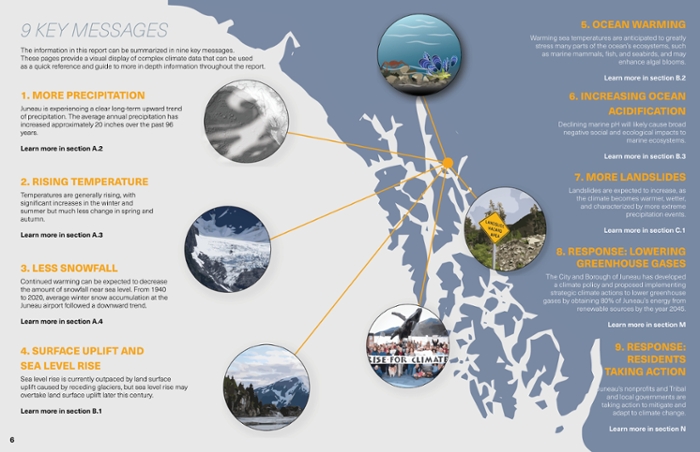
Juneau is experiencing a clear long-term upward trend of precipitation. The average annual precipitation has increased approximately 20 inches over the past 96 years. Learn more in section A.2.
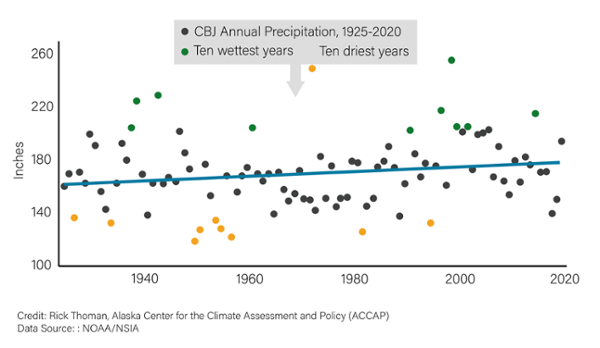
Temperatures are generally rising, with significant increases in the winter and summer but much less change in spring and autumn. Learn more in section A.3.
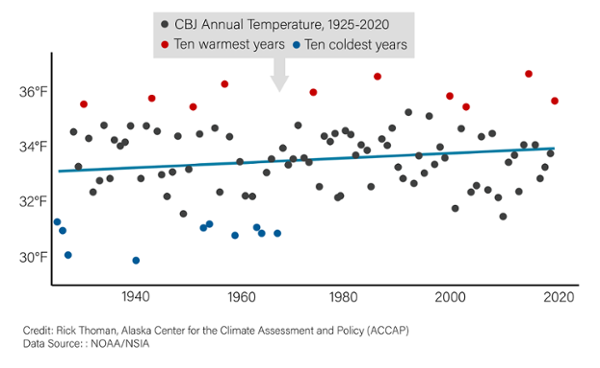
Continued warming can be expected to decrease the amount of snowfall near sea level. From 1940 to 2020, average winter snow accumulation at the Juneau airport followed a downward trend. Learn more in section A.4.
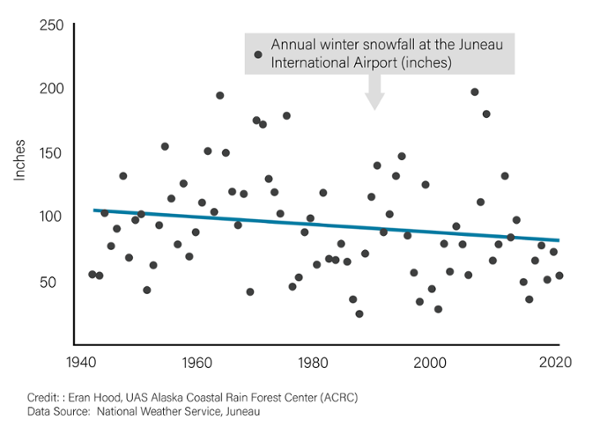
Sea level rise is currently outpaced by land surface uplift caused by receding glaciers, but sea level rise may overtake land surface uplift later this century. Learn more in section B.1.
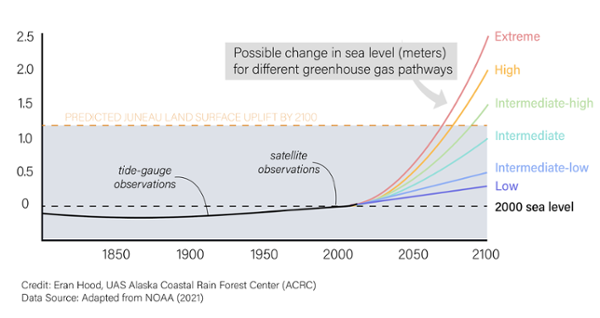
Warming sea temperatures are anticipated to greatly stress many parts of the ocean’s ecosystems, such as marine mammals, fish, and seabirds, and may enhance algal blooms. Learn more in section B.2.
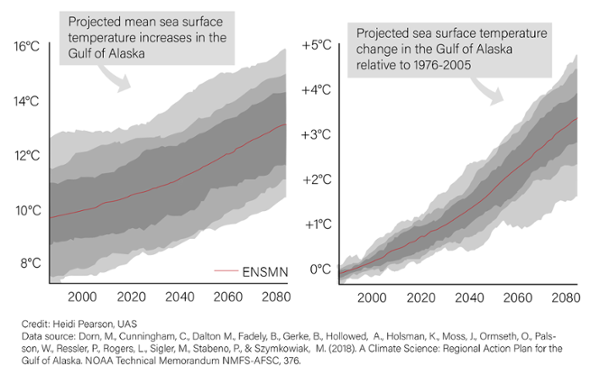
Declining marine pH will likely cause broad negative social and ecological impacts on marine ecosystems. Learn more in section B.3.
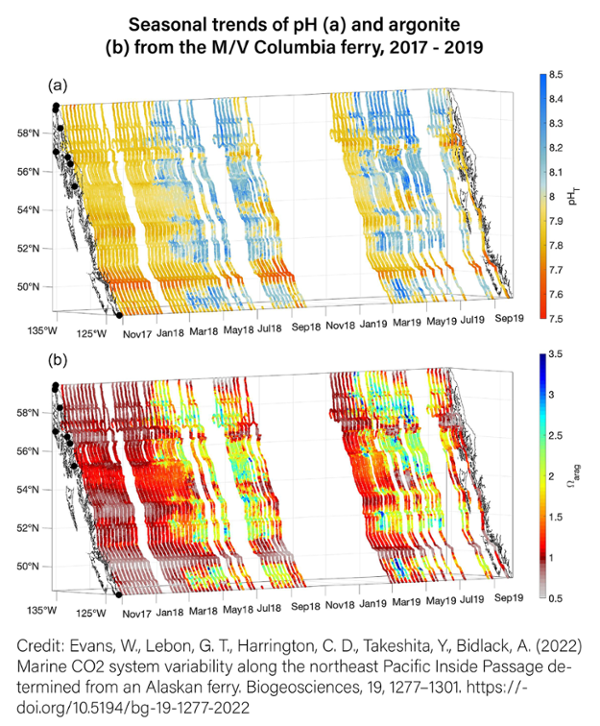
Landslides are expected to increase, as the climate becomes warmer, wetter, and characterized by more extreme precipitation events. Learn more in section C.1.
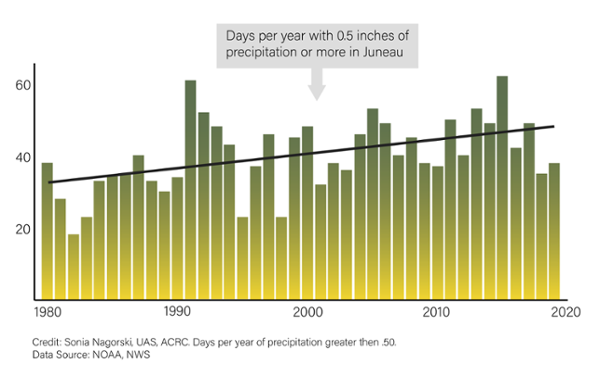
The City and Borough of Juneau has developed a climate policy and proposed implementing strategic climate actions to lower greenhouse gases by obtaining 80% of Juneau’s energy from renewable sources by the year 2045. Learn more in section M.
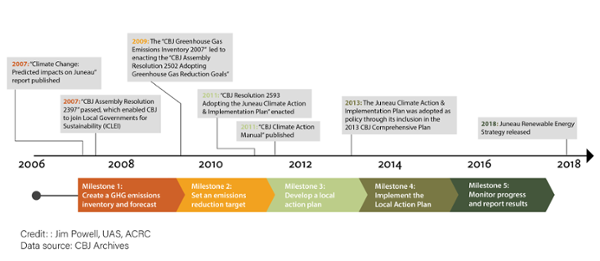
Juneau’s nonprofits and tribal and local governments are taking action to mitigate and adapt to climate change. Learn more in section N.